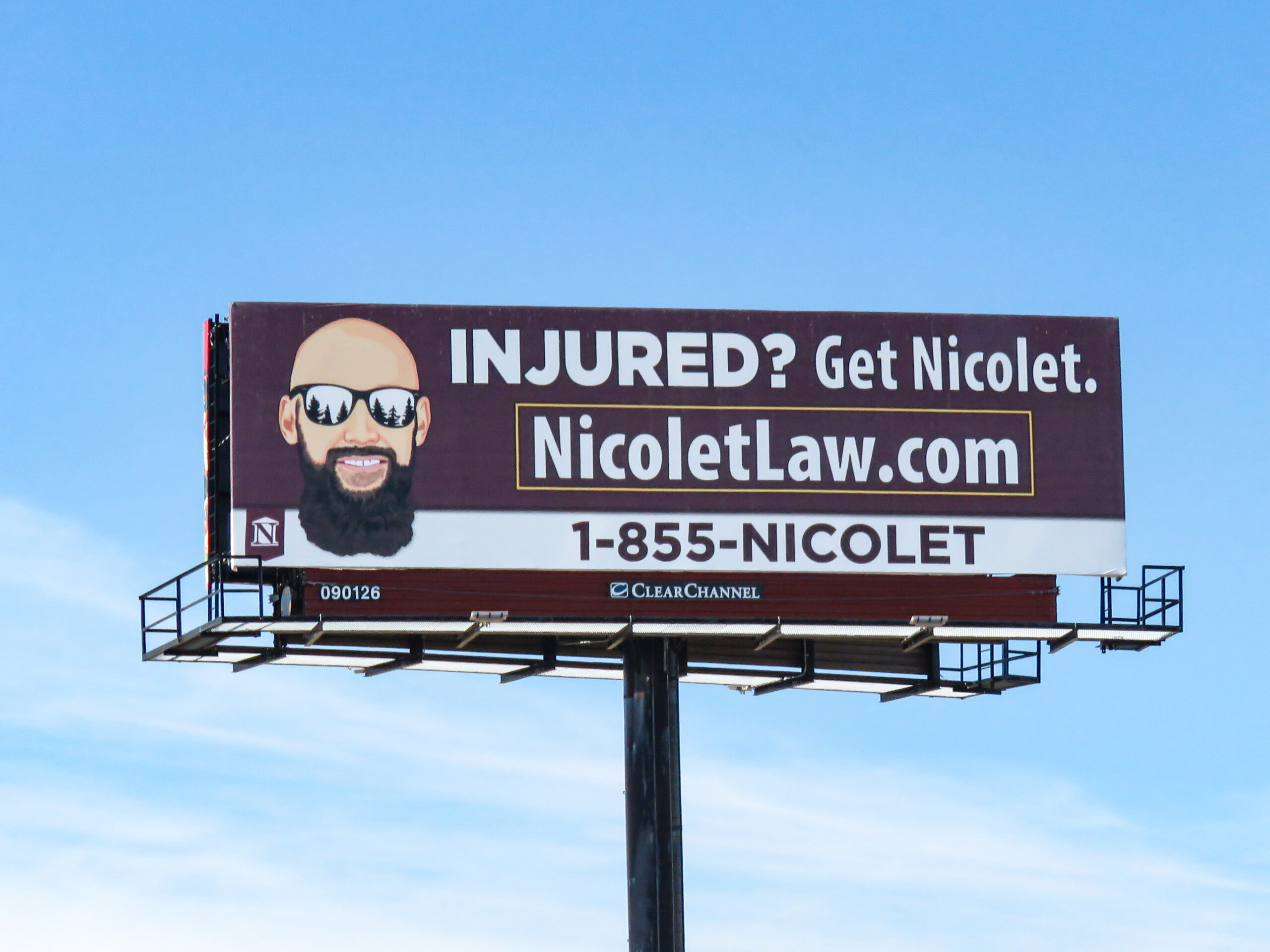If you suffered injuries or losses in a Minneapolis car accident someone else caused, you likely have a lot of questions and concerns. You need to understand what to do after a car accident in Minneapolis to protect yourself and your legal rights to seek compensation.
A skilled Minneapolis car accident attorney can guide you through the process of holding the at-fault party accountable and recovering damages. Contact a personal injury attorney near you today for a free consultation.
Steps to Take After a Car Accident
- Make Sure Everyone Is Safe: Your safety and the safety of others should come first. Check yourself and passengers for injuries. Even if you think you’re okay, adrenaline can mask serious harm. Look for visible wounds, pain, or signs of discomfort.
- Move to a Safe Location If Possible: If your car is drivable and the accident isn’t severe, move to the side of the road or another safe area. Remaining in traffic puts you at risk of further harm. Use caution, and only move vehicles if it’s safe.
- Turn on Hazard Lights: Turn on your hazard lights to alert other drivers. This simple step can prevent additional accidents and help first responders locate the scene quickly.
- Call 911 to Report the Crash and Request Medical Assistance: Minnesota law requires drivers to report any crash involving injury, death, or significant property damage. Call 911 and provide accurate information about the location and circumstances of the accident.
- Request Medical Assistance if Needed: If anyone appears hurt, ask for an ambulance. Even if injuries seem minor, let medical professionals evaluate everyone involved.
- Do Not Refuse Medical Treatment at the Scene: You might feel tempted to brush off medical attention, especially if your injuries don’t seem severe. However, some conditions, like concussions or internal bleeding, aren’t immediately apparent. Accepting care at the scene establishes an early record of your injuries, which can support your claim later.
- File a Police Report: A police report provides an objective record of the crash, which can be critical when negotiating with insurance companies or pursuing legal action.
- Provide Accurate Information to Responding Officers: When speaking with officers, stick to the facts. Share what you remember about the accident, but avoid speculating or admitting fault. The report should reflect an accurate account of the events.
- Take Photos of Vehicle Damage: Photograph the damage to all vehicles involved. Include close-ups of specific dents, scratches, or broken parts.
- Photograph the Overall Accident Scene: Wide-angle shots of the accident scene help capture details like vehicle positions, skid marks, or debris.
- Note Weather and Road Conditions: Documenting details like rain, snow, or poor lighting can provide context for how the crash happened. These factors could support your case.
- Exchange Information with Other Drivers Involved: Exchange names, phone numbers, addresses, driver’s license numbers, and insurance information.
- Collect Contact Information from Witnesses: If bystanders witnessed the crash, ask for their contact information. Witness statements can help clarify what happened if the facts are disputed.
- Get Medical Care: Don’t assume that minor aches or pains will go away on their own. Injuries often worsen in the hours or days after a crash.
- Importance of Documenting Injuries for Potential Claims: Seek medical attention promptly, and follow all treatment recommendations. Accurate medical records link your injuries to the accident, which strengthens your case for compensation.
- Notify Your Insurance Company: Your policy likely requires you to notify your insurance company after a crash. Provide basic details about the accident, but avoid speculating about fault or minimizing your injuries.
- Provide Basic Facts, Avoid Admitting Fault: Keep your statements factual and concise. Admitting fault, even casually, could harm your claim later.
- Keep All Accident-Related Documents: Save everything connected to the accident, including police reports, medical records, repair estimates, and receipts.
- Save Medical Records and Bills: Medical expenses provide clear evidence of the costs you’ve incurred due to the crash. They’re essential for calculating compensation.
- Avoid Discussing Fault with Other Parties: Conversations with other drivers, witnesses, or insurance representatives can be misconstrued. Let the facts speak for themselves.
- Be Wary of Early Settlement Offers from Insurance Companies: Insurance adjusters may pressure you to accept a quick settlement. These offers often fall short of covering your losses. Consult with an attorney before agreeing to any terms.
- Know Minnesota's No-Fault Insurance Laws: Minnesota’s no-fault insurance system means your insurance covers certain initial losses, like medical bills and lost wages, regardless of who caused the accident.
How It Affects Your Rights and Claim
While no-fault coverage helps with immediate expenses, it doesn’t cover non-economic damages like pain or emotional distress. To pursue those, you’ll need to meet specific thresholds, at which point you may be able to step outside of the no-fault system and file a claim against the at-fault party.
Consult with a Minneapolis Personal Injury Attorney

A car accident attorney can evaluate your case, handle communication with insurers, and gather evidence to support your claim.
They will focus on securing the compensation you deserve, including costs for medical care, lost income, and other damages caused by the crash.
Factors That Determine Whether You Have a Valid Car Accident Claim
Determining whether you have a valid car accident claim involves examining several key factors. These elements help establish the at-fault party's responsibility and your right to compensation.
Proof of Liability

To hold another party accountable, your attorney must show that their negligence caused the accident. Negligence typically involves:
- The at-fault party had a responsibility to act safely (e.g., following traffic laws).
- They violated that responsibility, such as by speeding or running a red light.
- Their actions directly led to the accident and your injuries and you incurred compensable damages as a result.
Your lawyer’s ability to prove these elements will heavily influence the outcome of your claim. Evidence like police reports, witness statements, and accident reconstruction reports can establish liability.
Severity of Injuries
The extent of your injuries often determines the viability of your claim. Severe injuries typically result in higher medical bills, extended recovery periods, and a greater impact on your life. Your attorney must provide documentation, such as medical records and expert evaluations, to demonstrate how the accident has affected you physically and emotionally.
Documentation of Damages
Your attorney must provide evidence of your financial losses and other impacts resulting from the accident. Common damages include:
- Medical expenses (past and future)
- Lost income from time off work
- Costs for ongoing care or therapy
- Vehicle repair or replacement costs
Non-economic damages, such as compensation for pain and suffering, may also apply in cases involving significant injuries or emotional distress. Thorough records strengthen your claim and provide a clear picture of what you’ve lost.
Contributory Negligence
Minnesota follows a modified comparative negligence rule, meaning you can still recover damages if you were partly at fault, as long as your fault is 50% or less. However, your compensation will be reduced by your percentage of fault. For instance, if you’re found 20% responsible, your compensation will be reduced by 20%.
Insurance Company Tactics
Insurance adjusters often try to minimize payouts by questioning the severity of your injuries or suggesting you were at fault. An attorney can help counter these tactics and negotiate for the full amount you’re entitled to receive.
Assessing these factors requires careful attention to detail and strong evidence. Working with an experienced car accident attorney ensures your claim is thoroughly evaluated and pursued to its full potential.
Car Accident Statistics for Minneapolis
- In a recent year, Minneapolis reported 4,152 total traffic accidents that injured nearly 2,000 and killed 20.
- Most car accidents in Minneapolis occur on the weekend and during rush hour between 5:00 p.m. and 6:00 p.m.
- The most common causes of serious car accidents include speeding, failure to yield, distracted driving, and impaired driving.
- Some of the most dangerous roads and intersections in Minneapolis for vehicle wrecks include Washington Avenue South to 12th Street South, 1st Avenue North to 11th Avenue South, Broadway Street, Lake Street, Franklin Avenue, and Hiawatha Avenue.
How an Attorney Can Help You Get Compensation After a Minneapolis Car Accident
Hiring a car accident attorney after a crash in Minneapolis provides invaluable support during an already stressful time. An attorney’s guidance can make the difference between receiving fair compensation and settling for far less than you deserve.
Thorough Investigation of the Accident
An attorney will gather evidence to establish liability and support your claim. This investigation often includes:
- Reviewing the police report
- Collecting witness statements
- Examining photos or videos of the crash scene
- Working with accident reconstruction specialists
This process ensures a clear narrative of what happened, making it harder for insurance companies to dispute the facts.
Calculating the Full Value of Your Claim
Determining how much compensation you should receive requires a detailed analysis of your losses, including:
- Medical expenses, both current and future
- Lost income and diminished earning capacity
- Costs for repairing or replacing your vehicle
- Compensation for pain, suffering, and emotional distress
An attorney ensures no damages are overlooked and fights to secure the compensation necessary to help you move forward.
Dealing with Insurance Companies
Insurance companies often aim to protect their bottom line by offering quick, low settlements or questioning the severity of your injuries. An attorney can:
- Handle all communication with the insurer.
- Push back against unfair settlement offers.
- Present evidence that demonstrates the impact of the crash on your life.
Having legal representation signals to the insurance company that you won’t settle for less than what you’re owed.
Advocating for You in Settlement Negotiations
Most car accident claims resolve through negotiations without needing a trial. However, these discussions require skill and a deep understanding of personal injury law. Your attorney will advocate on your behalf, countering lowball offers and pushing for a fair resolution.
Filing a Lawsuit if Necessary
When the at-fault party or their insurer refuses to offer reasonable compensation, your attorney can take the case to court. Filing a lawsuit demonstrates that you’re serious about securing what’s fair and may prompt the other party to negotiate more earnestly.
Managing the Legal Process
Navigating a car accident claim involves many steps, from filing paperwork to meeting deadlines. Missing a key deadline, like Minnesota’s six-year statute of limitations for personal injury claims, can result in losing your chance to recover compensation. An attorney ensures all legal requirements are met, so you can focus on healing.
Proving Liability and Countering Defenses
In some cases, the at-fault party may argue that you share responsibility for the accident. Minnesota’s modified comparative negligence rule reduces your compensation if you’re partly at fault. An attorney will work to minimize any fault attributed to you, maximizing your potential recovery.
Access to Experts and Resources
Attorneys often collaborate with medical experts, economists, and other professionals to strengthen your case.
For example:
- Medical experts can explain how your injuries are connected to the crash.
- Economists can calculate the long-term financial impact of your injuries.
These resources help present a compelling argument for the compensation you need.
Providing Peace of Mind
Dealing with insurance companies, medical bills, and legal paperwork while recovering from injuries is overwhelming. An attorney takes on the legal burdens, allowing you to focus on your recovery and well-being.
With an attorney by your side, you have an advocate who is committed to protecting your rights and pursuing the compensation you deserve. From gathering evidence to negotiating with insurers, their knowledge and experience ensure your claim is handled professionally and with your best interests in mind.
How Long You Have to File a Car Accident Lawsuit in Minnesota
Minnesota law typically allows up to six years to file a personal injury lawsuit following a car accident. Certain cases involving underinsured drivers have only four years.
Waiting too long could jeopardize your ability to recover compensation, so act promptly to protect your rights.
Contact a Minneapolis Car Accident Attorney Now

When dealing with the aftermath of a car accident in Minneapolis, you need someone on your side who understands the challenges ahead.
Nicolet Law Accident & Injury Lawyers takes pride in offering compassionate, effective representation to accident victims.
We handle every case with care, guiding clients through the process and working to secure fair compensation. With a history of resolving cases through settlements and litigation, we’re prepared to help you.
Contact us today for a free consultation. Let us focus on your claim so you can focus on healing.
